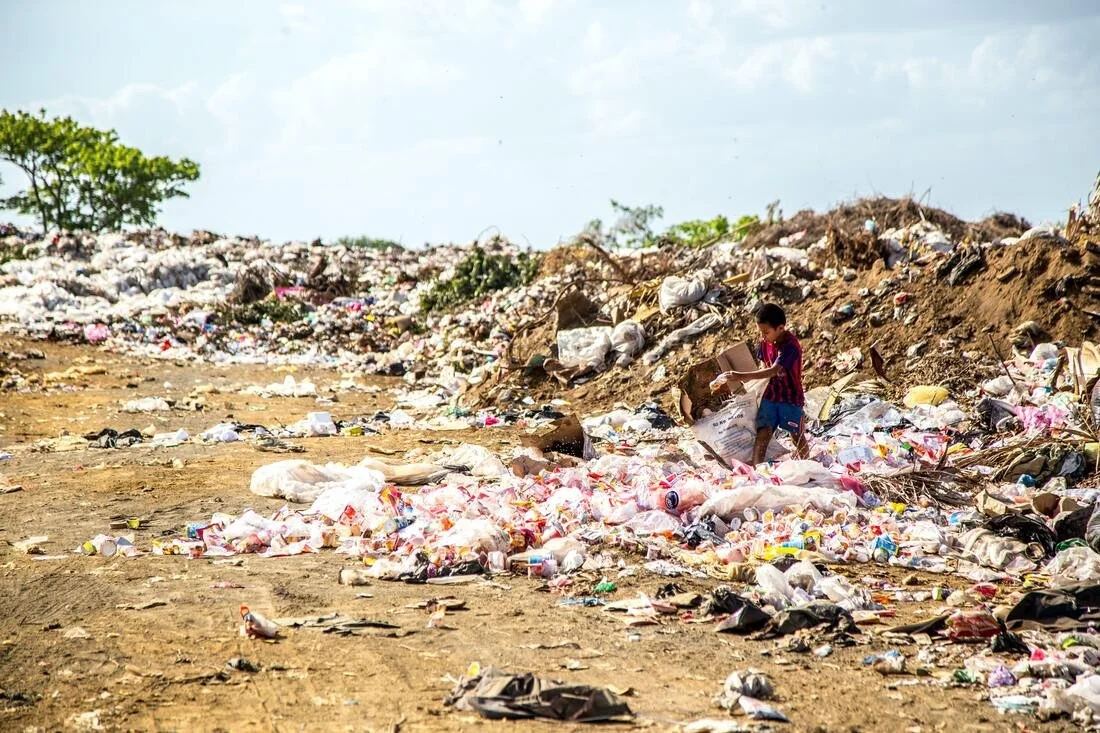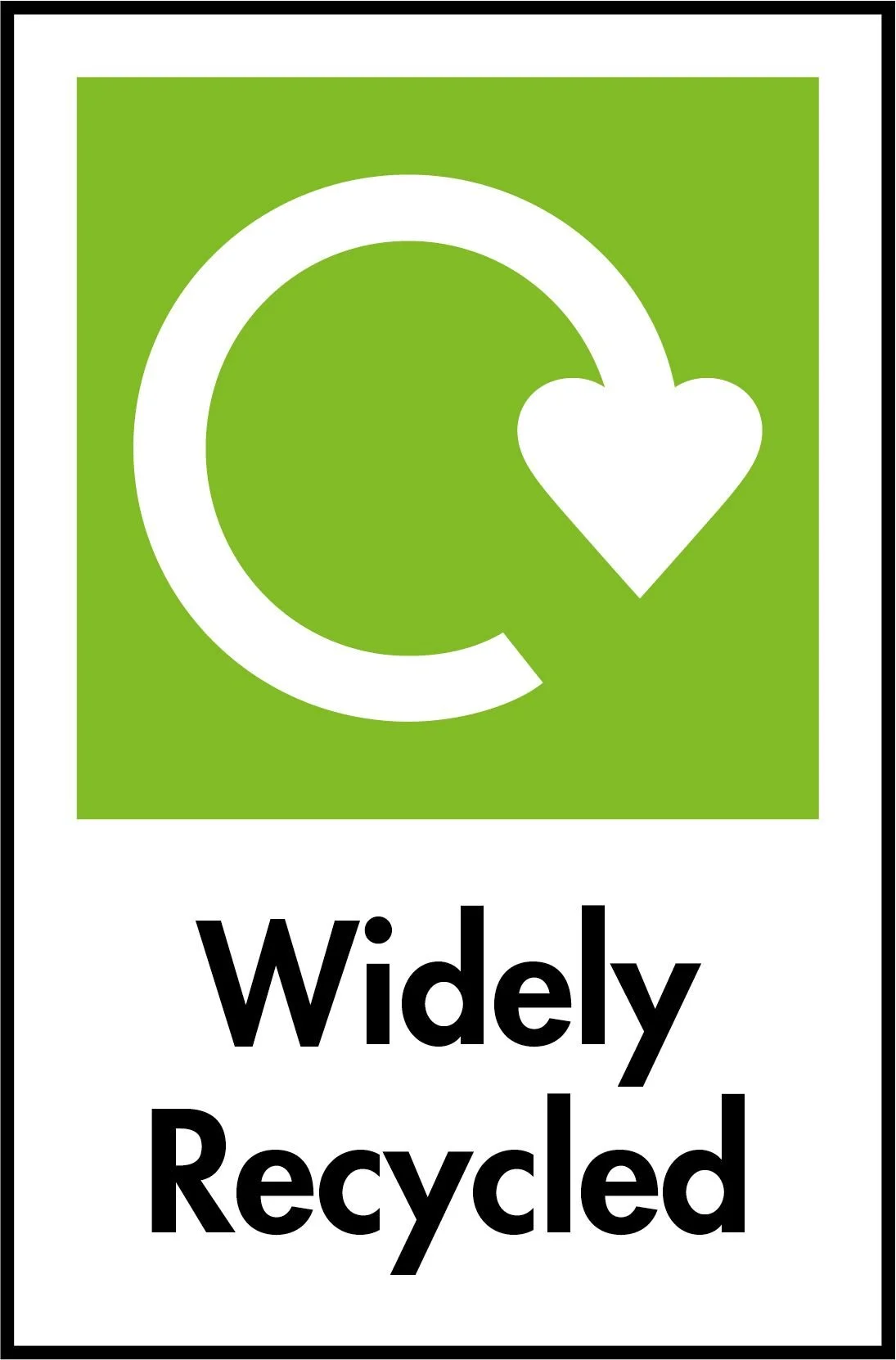War on pointless plastic (Part 1)
Original article updated 2/22/2022
Lies, lies, lies… and confusing labelling.
Looking at the picture above, it truly looks like a battlefield, with "dead" bodies lying all around.
According to a recent report, every single minute of every single day a truckload of plastic is finding its way to our ocean. Imagine a collection truck emptying its content on every beach in the world every single day.
Plastic waste from the UK has been collected on the beaches of Malaysia.
The main problem with single-use plastic is that it is used only once and takes hundreds (even thousands) of years to decompose, contaminating our food, cosmetics and personal care products. All the while, a myriad of toxic chemicals accumulate in our bodies (and in nature) — many of which are endocrine disruptors — wreaking havoc inside our bodies every single day of our lives.
The other problem with plastic is that it ends up in landfill, discarded in the streets, or blown into our rivers and polluting our oceans and killing animals the world around. There is not one place on the globe where plastic cannot be found.
According to the report, “32% of the 78 million tons of plastic packaging produced annually is left to flow into our oceans; the equivalent of pouring one garbage truck of plastic into the ocean every minute.”
If it wasn’t bad enough, another 40% of plastic ends up in landfills, which may not only contaminate the soil and pollute lakes and rivers, but it is also very likely that some of this plastic may travel to the seas helped by rain and winds.
This means that 72% of the 78 million tons of plastic packaging produced annually ends up in the environment.
What of the rest?
14% is incinerated, releasing very toxic compounds into the atmosphere (the air we breathe) and just about 10% is effectively recycled.
“The problem with single-use plastic is that it is used only once and takes hundreds of years to decompose. All the while contaminating our food... and polluting our oceans.”
The above-mentioned report says people are hungry for change.
I'm afraid to say, people have never asked for plastic. Plastic-wrapped food was a creation by supermarkets to give consumers convenience. As we have learned over the last decades, convenience always comes with a price and when it comes to plastic the cost is dear indeed, and we will continue to pay for it for many centuries to come.
“Supermarkets are the number one source of the problem by driving the manufacture of plastic and generating millions of tonnes of plastic every year and unacceptable waste.”
If you shop at Sainsbury’s or saw their latest ad, you may feel that it is a great move forward in reducing plastic waste.
Sainsbury’s pledges to reduce plastic packaging by 50% and ensure all plastic packaging is reusable, recyclable or compostable by 2025. It currently uses around 120,000 tonnes of plastic per year. Other supermarkets may use considerably more.
Sainsbury’s claims it has already implemented measures that are leading to a reduction of over 10,000 tonnes of non-recyclable plastic and “virgin plastic” every year.[1]
I have renounced ordering food online because some stores continue to distribute their products in plastic bags. I do not understand that in our day and age, that is not punishable by law. Supermarkets are the number one source of the problem by driving the manufacture of plastic and generating millions of tonnes of plastic every year and unacceptable waste.
Some stores collect plastic bags, so if you have any, get rid of them at their facilities.
The key issue is that changing the labels was essential, making it clearer as to what is recyclable or not.
Again, manufacturers have been abusing our trust by applying labels that are irrelevant or not accurate. In other terms, they are legally lying to us on a wide scale, like they do with many of the questionable ingredients they use in manufacturing and their safety.
For example, sandwich boxes are clearly labelled “widely recycled” but due to the way they are produced (the plastic cannot be peeled away from the cardboard packaging), they are not recyclable.
You may still remember the old logos, like “widely recycled” which did not mean widely recyclable.
"Widely recycled" means that it was collected by over 75% of local authorities. This, in other terms, means that if you put it in your recycling bin it will be collected in over 75% of councils.
Other local authorities may not offer a recycling bin and so people are advised to bring their recycling waste to a collection point or site.
Politicians and civil servants can abstain from recycling. Even the minister for the environment is allowed to not separate recyclable waste from household waste, as revealed in a documentary on recycling.
Many high-rise buildings and large residences still do not offer recyclable waste bins and so people bin everything with their general waste, which, more often than not, ends up in landfills.
Previously used logos, which were extremely confusing to say the least:
May not be recyclable
May not be recycled
(but is recyclable)
Now, this logo has been replaces by new OPRL logos.
The Green Dot
This logo doesn't mean recyclable.
The above logo was designed to bring confusion. Actually, almost half of those surveyed thought that this symbol (a circle of two intertwined arrows) meant that the product is recyclable when it actually means that the manufacturer has paid into a scheme that supports recyclable packaging and systems.
This is the perfect example of misleading arguments, in the like of companies claiming to be carbon-neutral, when in fact still contribute to CO2 emissions — but plant trees to feel better about themselves and pretend to be something they are not. A polluting site in the UK planting some trees in Indonesia, for example, can claim to have a neutral carbon footprint on the label of products sold in the UK.
What the company does, in fact, is simply "offsetting their emissions," which definitely is not the same as being carbon-neutral (they should not emit CO2 as part of running their site).
Unfortunately, every home and industry emits CO2 or participates in the emission of CO2, either by using utilities (or fossil fuels to run their site), manufactured products (paper, printers, ink cartridges, fridges, ovens, microwaves, carrousels/conveyer belts, cardboards and all types of wrappers) and produce that has been shipped from all over the world (think kerosene-ran planes and ships, trucks and cars).
So, while you see the above logo and think that the company cares about the environment, this company is actually using your money (with which you buy their products) to pay into a scheme for recyclable packaging — so that you are tricked to believe they do care.
Shame stores and supermarkets by bringing back pointless plastic to their stores.
#OURPLASTICFEEDBACK
If I am at the supermarket and packing my bags, I am unwrapping all (safe) products that are sold in plastic, like fruits and vegetables. Waitrose Duchy Organic* still persists in selling fruits and vegs in plastic, none of which I want to take home.
If I create a queue at the till, well then, they should remove their plastic from organic foods. Simple.
* Duchy Originals Ltd was set up by King Charles III when he was Prince of Wales. Today, Waitrose exclusively licenses the Duchy Organic brand and has also removed the royal crest for a more modern look.
So, which part of our lives is plastic not taking over?
The truth is, none!
Plastic is ubiquitous in the environment and in our lives, and in our bodies.
Plastic leaches from plastic contenants and single-use wrappers, including plastic water/drink/milk bottles, soaps, shampoos and lotions bottles/jars, from the takeaway box, cup and lid, of food/tea/coffee, to the sandwich box and the BPA-lined tins and flasks; from tea bags (it has been known for decades that tea bags are made of platic), from our clothes and our shoes; from the plastic components of car interiors (releasing fumes generated by heat and sunlight), like dashboards/seat covers (dipped in extremely toxic scotchguard/fire retardant treatments); from the store and credit card receipts (lined with BPA) to the suppermarket platic bags; from the vinyl flooring to the PVC window/door frames and shutters (also containing titanium dioxide to prevent discolouring due to sun exposure); and, for those who tend to chew on their plastic pens; and every time you apply nail varnish, foundations (liquids or powders; plastic helps to fix the lotion/powder/etc. by melting on the skin) or lipstick.
As you can see, plastic is everywhere.
I am not mentioning here the billions of plastic bags and liners used in nurseries everywhere in the world to grow food, plants and trees, as well as greenhouse covers. Due to being soiled and deemed unrecyclable, this plastic is not recyclable and pollutes the environment further. One of the main reasons, the plastic used in agriculture is not recyclable is because it is usually badly soiled and shown to contain excessive levels of petrochemical derivatives (e.g. extremely toxic pesticides and synthetic fertilisers), which makes these a double environmental disaster.
“Plastic is ubiquitous in the environment and in our lives, and in our bodies.”
To continue reading this article, click on button below



